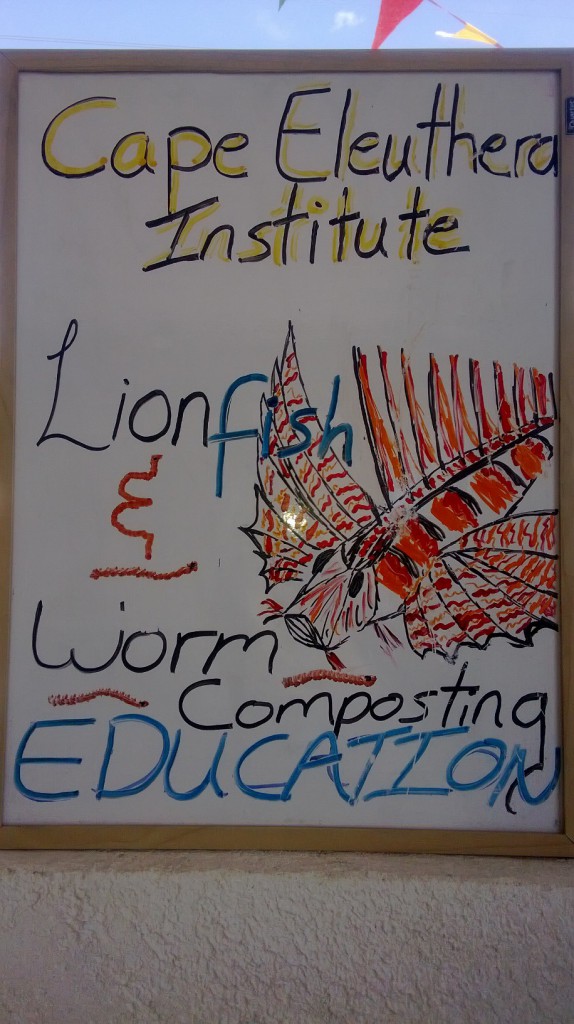 To celebrate Earth Day and coastal awareness month, One Eleuthera Foundation (OEF) held an environmentally-themed festival. “Reduce, Reuse, Recycle- Respect Mother Earth” was the theme for this day of celebration. OEF partnered with a number of non-profit organizations, local craft vendors, local businesses and government departments. The goal of this event was to bring about awareness, to educate, and to demonstrate alternatives.
To celebrate Earth Day and coastal awareness month, One Eleuthera Foundation (OEF) held an environmentally-themed festival. “Reduce, Reuse, Recycle- Respect Mother Earth” was the theme for this day of celebration. OEF partnered with a number of non-profit organizations, local craft vendors, local businesses and government departments. The goal of this event was to bring about awareness, to educate, and to demonstrate alternatives.
Cape Eleuthera Institute (CEI) was represented by Tamanji Bethel and Giltavia Goodman (Deep Creek Middle School Student), who presented on the invasive species of the ocean and worm compost. For lionfish, the message is that lionfish are here to stay! CEI continues to educate Eleutheran communities about lionfish, to create a market for the fish, and take some pressure off of overfished creatures like conch and grouper.
The team also talked about the plus side of worm composting, as a way to farm that is both healthy and sustainable.
There are many environmentally friendly ways to live and CEI is on the move to a greener earth. Many people visited the CEI booth, were engaged and left with new information. CEI will continue outreach, and connecting and changing the communities one topic at a time.
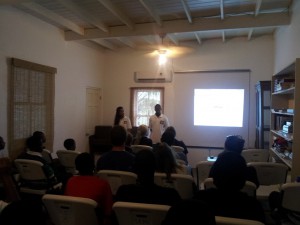
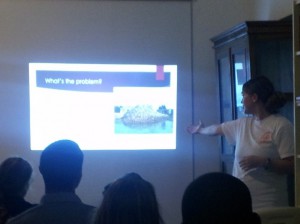
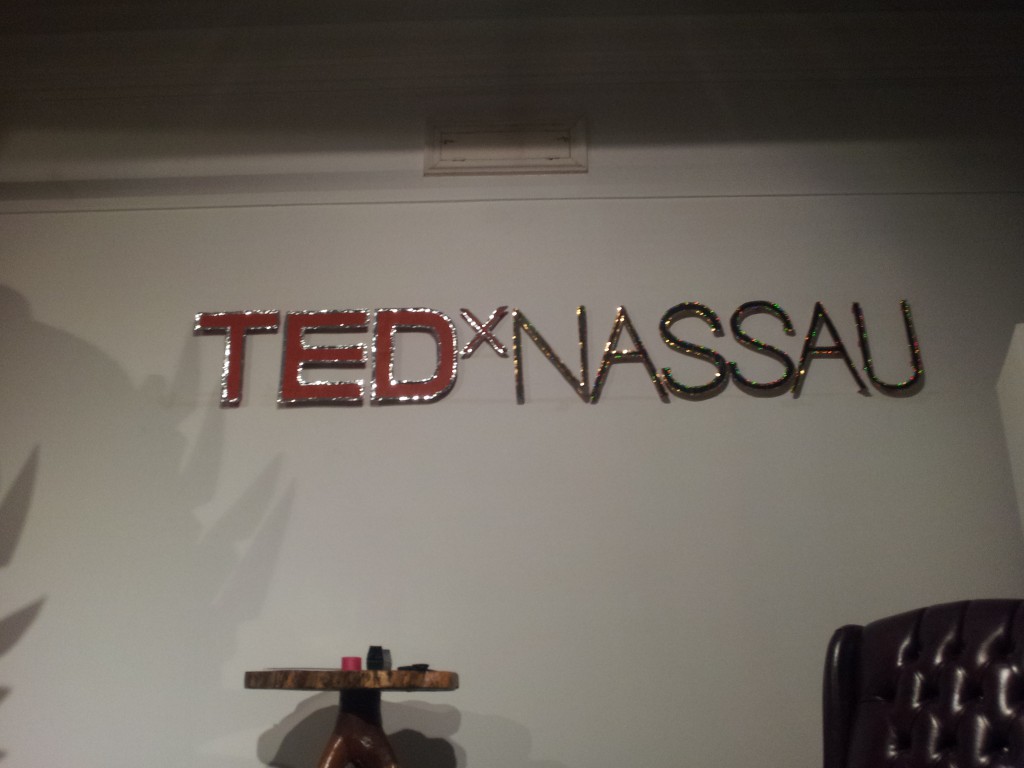
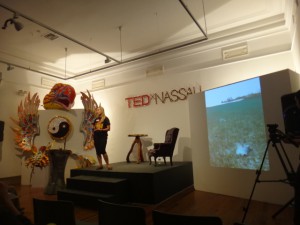
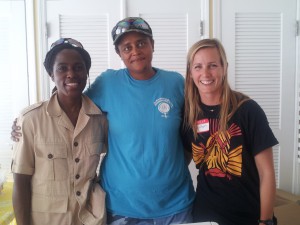
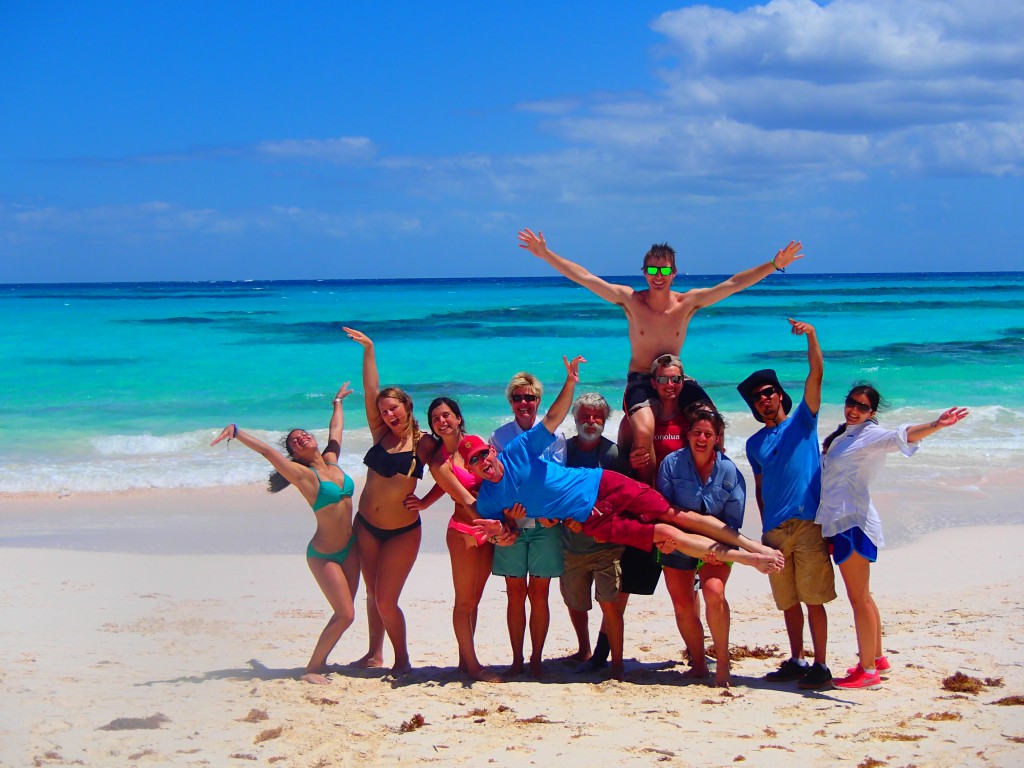
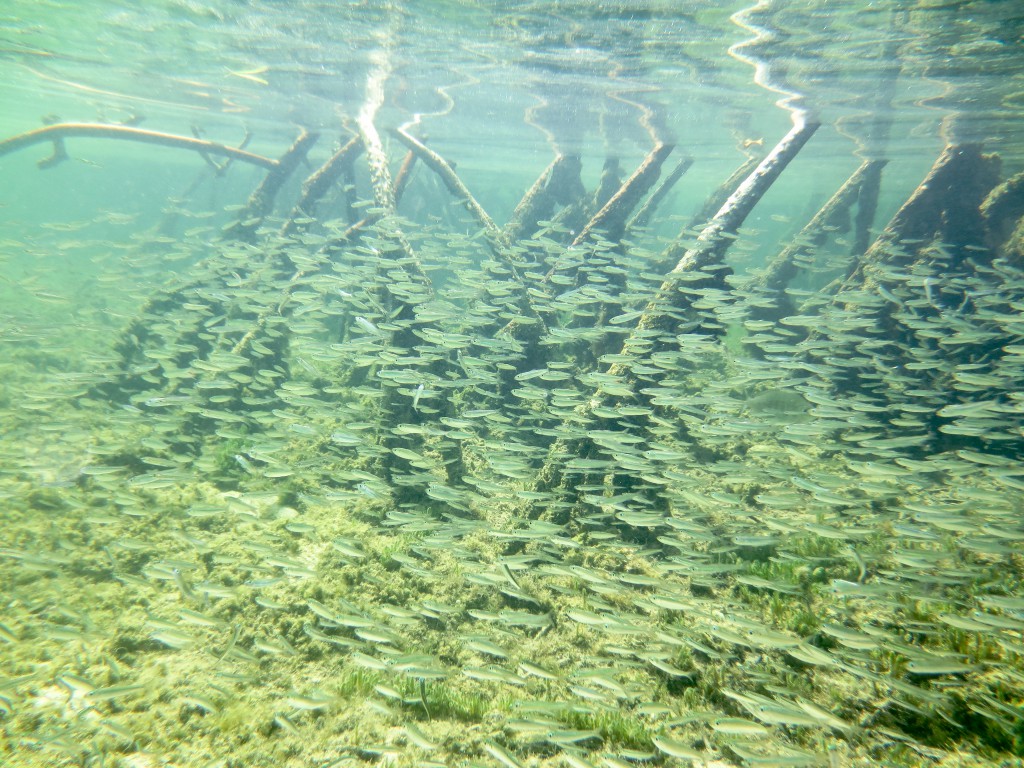
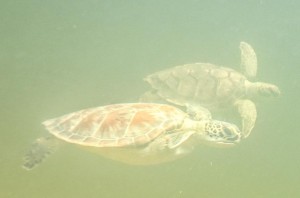
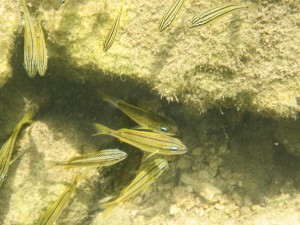
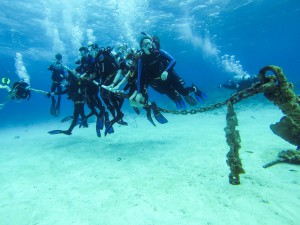

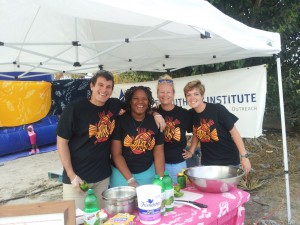
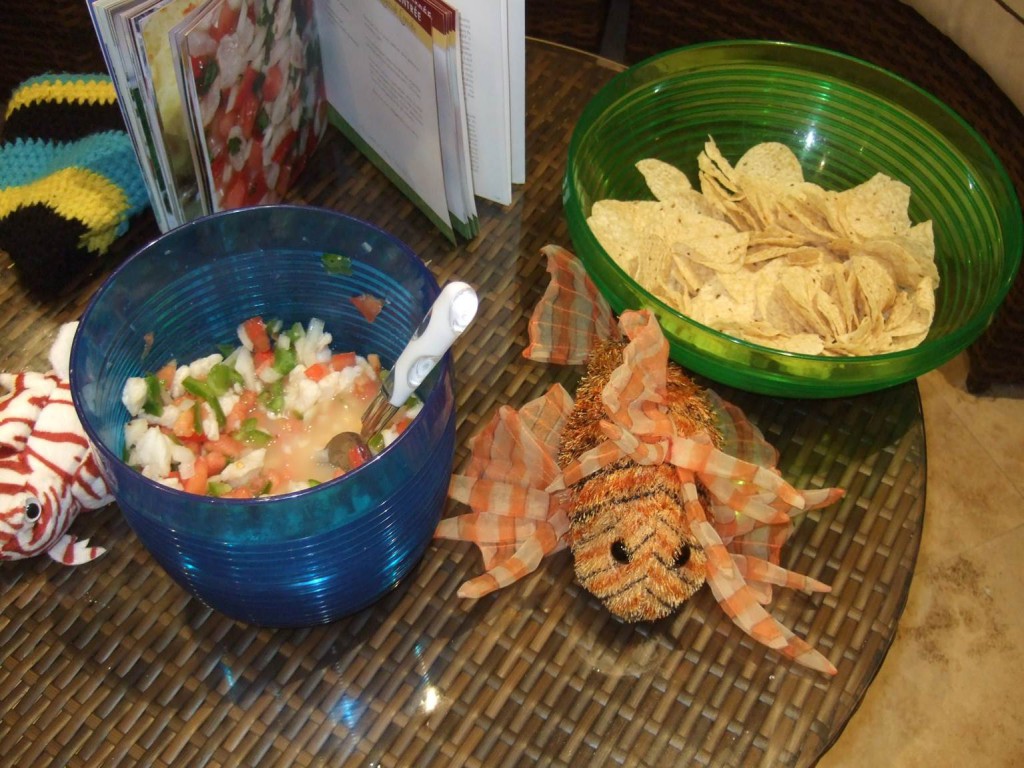
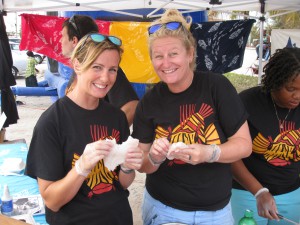
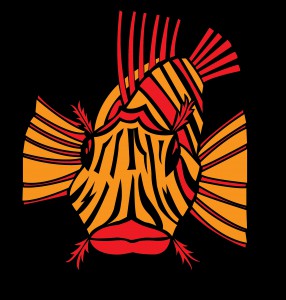
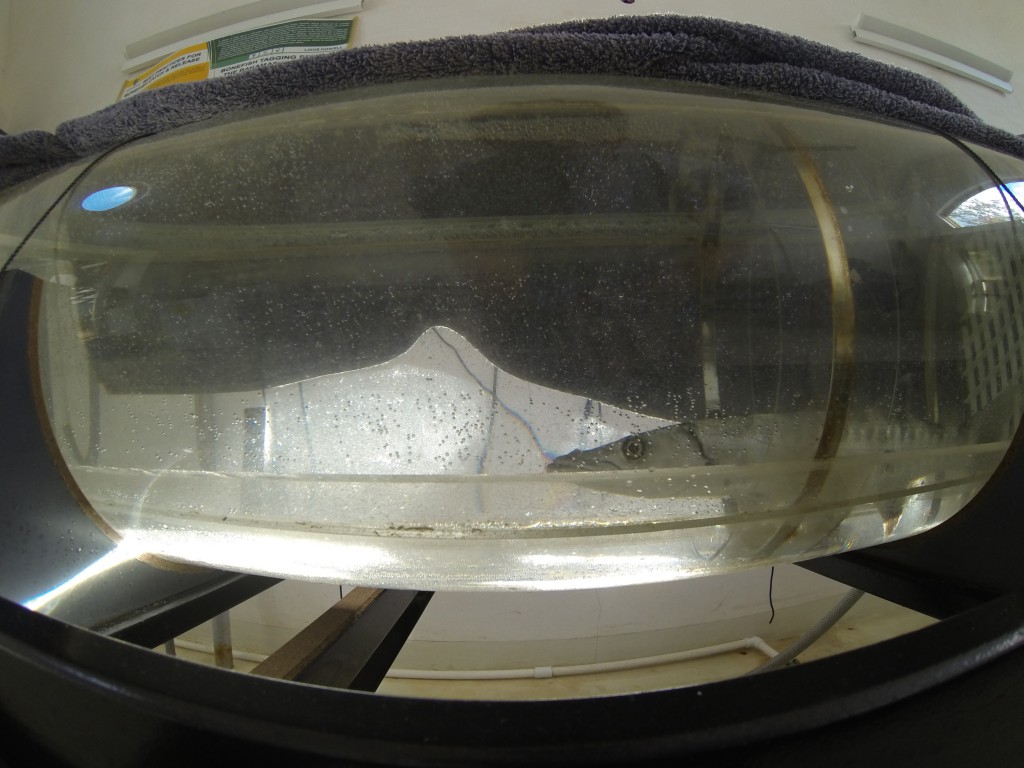
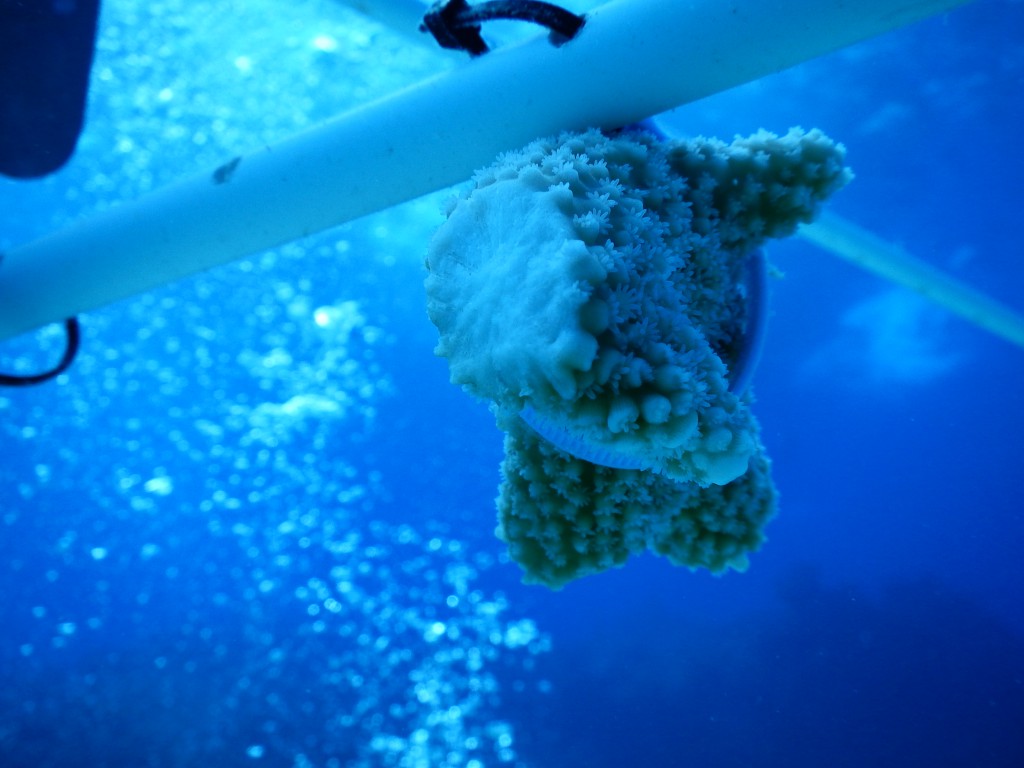
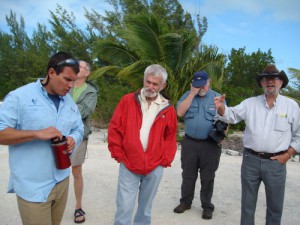 A group of biologists from Universities throughout the United States gathered to discuss the improvement of the research facilities at the Cape Eleuthera Institute (CEI). This meeting was funded by a National Science Foundation planning grant written by PI Dr. Bill Louda (Florida Atlantic University) and Co-PIs Dr. Dave Philipp (University of Illinois), Dr. Brian Lapointe (Florida Atlantic University), and Aaron Shultz (CEI). The expert panel, along with their individual research interests, is listed below. The three day meeting started off with a tour of The Island School and CEI campus, and an excursion to some of the natural points of interest on the island.
A group of biologists from Universities throughout the United States gathered to discuss the improvement of the research facilities at the Cape Eleuthera Institute (CEI). This meeting was funded by a National Science Foundation planning grant written by PI Dr. Bill Louda (Florida Atlantic University) and Co-PIs Dr. Dave Philipp (University of Illinois), Dr. Brian Lapointe (Florida Atlantic University), and Aaron Shultz (CEI). The expert panel, along with their individual research interests, is listed below. The three day meeting started off with a tour of The Island School and CEI campus, and an excursion to some of the natural points of interest on the island.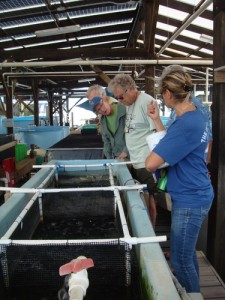 Several group meetings were held to discuss other research stations in the region (E.g., Central Caribbean Marine Institute, Florida Keys Marine Lab, etc.), current research projects at CEI, how to diversify the research portfolio at the institute, and the infrastructure needed to meet current and future demands. The following are highlights from the discussions: the need for an ecosystem based approach to our research initiatives; the need for water quality analysis; and more lab space for visiting researchers and graduate students. Overall, it was a very productive site visit that will aid in the development of the full NSF laboratory improvement grant. CEI looks forward to collaborating with these researchers in the future.
Several group meetings were held to discuss other research stations in the region (E.g., Central Caribbean Marine Institute, Florida Keys Marine Lab, etc.), current research projects at CEI, how to diversify the research portfolio at the institute, and the infrastructure needed to meet current and future demands. The following are highlights from the discussions: the need for an ecosystem based approach to our research initiatives; the need for water quality analysis; and more lab space for visiting researchers and graduate students. Overall, it was a very productive site visit that will aid in the development of the full NSF laboratory improvement grant. CEI looks forward to collaborating with these researchers in the future.